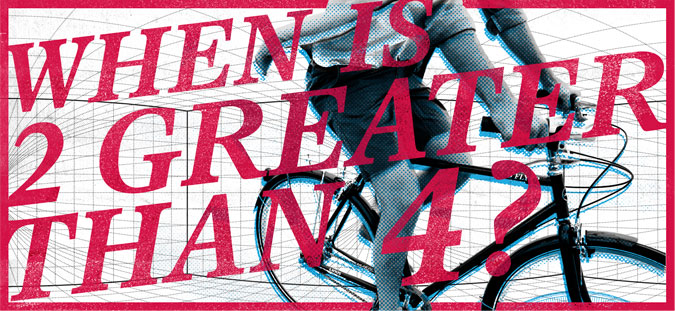
Here's a college that takes sustainable transportation seriously: The University of Dayton gave away 100 bikes to incoming freshman this year in exchange for an agreement that they would leave their cars at home.
The bikes, which retail for more than $650, were awarded by lottery to 100 students out of a pool of 293 who had agreed not to bring a car to campus for the first two years. Male students will receive a Linus Roadster Sport and female students will be given the Linus Dutchi 3, the university reports.
An outgrowth of a successful bike-share program launched two years ago that has recorded 3,000 trips in the last year, the program is part of a larger initiative to create a bike-friendly campus and reduce the carbon footprint of the university.
"We become ambassadors of what we value," UD's vice president for enrollment management, Sundar Kumarasamy, told WDNT. "We are a green campus."
The campaign cost $90,000, according to the New York Times. That's a bargain.
According to the Victoria Transport Policy Institute [PDF], the annualized cost of each parking space can range from about $650 for surface spots in suburban locations to over $4,000 for structured spaces in cities. For every bike purchased, the university eliminated the need for three parking spaces for two years. Even better, these bikes retail for more than $600, but the university was able to buy them for $400 a piece. This is another great example how smart transportation demand management strategies are boosting the bottom line at colleges around the country.
But this program had value for the university over and above basic cost savings, according to the New York Times. The free bike program was conceived by a Philadelphia-based advertising agency the university employs to help differentiate UD in the increasingly competitive field of higher education. The program has clearly resulted in some powerful marketing opportunities, like being featured in the New York Times, Forbes, and the Huffington Post.





